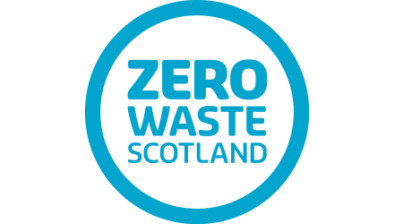Zero Waste Scotland launches new net-zero plan for businesses

Iain Gulland
A new net-zero plan launched by Zero Waste Scotland aims to show public, private and third sector organisations how to rebuild after coronavirus and meet their vital obligations on ending the climate emergency at the same time.
Zero Waste Scotland has published its plan setting out five key steps for companies, councils and charities to achieve net-zero emissions by identifying the best ways for them of doing business differently so the economy and the environment can recover together in a mutually sustainable way.
The circular economy expert - which leads efforts to reduce the vast amount of waste causing most of Scotland’s emissions - said finding out the biggest cause of their carbon footprint was the crucial starting point for every organisation because there was no universal source or solution.
Armed with that information, businesses and other bodies could then test, implement and share experiences of ways to effectively target their own greatest organisational emissions. This would mean that the changes they make as Scotland rebuilds will do the most to ensure they hit the Scottish Government’s key pledge to end the nation’s contribution to the climate crisis by 2045.
All public bodies nationwide have been tasked by the Scottish Government to develop their own net-zero plans, while many businesses are doing the same to help meet the landmark target.
The five principles set out in Zero Waste Scotland’s plan to guide organisations on the right path to net-zero are:
- Be led by evidence (covering calculating and targeting worst emissions)
- Achieve absolute emissions reductions
- Prioritise reducing emissions over offsetting
- Go beyond net-zero to tackle your whole carbon footprint
- Share successes and failures to help accelerate change
Launching the plan, alongside a linked report sharing Zero Waste Scotland’s experience so far of successfully cutting its own emissions, Iain Gulland, chief executive, said: “For everyone, including us, the starting point in ending Scotland’s contribution to the climate crisis is identifying the key causes of your own organisation’s emissions so you can target them effectively.
“We are publishing our net-zero plan so that businesses, councils and other organisations can see how to do that, what it means for us and work out what it will look like for them, because every organisation is different.
“What we share, however, is a collective responsibility to act. We are all in this together and, as the current coronavirus crisis has shown, we are also all learning together what we can do differently in response to a global crisis. We have rightly been focused on overcoming the pandemic as the most urgent threat short-term, but we all want lockdown to end as soon as it is safe to ease these challenging but vital restrictions.
“Many have noted the resilience and resourcefulness which have characterised our collective response. This has demonstrated that new ways of working are possible which could be adapted to make a real difference in tackling the climate emergency, which remains the greatest challenge of our lifetime.
“By building back better, we can overcome both these crises at once, making the right decisions for the environment and the economy to reach net-zero and end the climate emergency by creating more jobs and businesses through a stronger, safer, fairer and more sustainable economy in Scotland.”
Zero Waste Scotland found that its own greatest emissions came from commuting and corporate travel, which it said was likely to be the same for others in the nation’s service industry.
Its plan also sets out how it aims to almost halve its total operational emissions from corporate travel, electricity, heat, waste and water within just three years by expanding past measures, including a successful no-fly zone, and switching more than half of its computer servers to renewable-powered virtual systems.
As the plan was produced before lockdown, Zero Waste Scotland is currently reviewing its proposed measures, illustrating the adaptability and agility which all organisations need. It estimates that the benefits of continuing homeworking long-term could reduce its own carbon footprint by almost 75% as initial extra emissions from one-off investment in extra equipment are outweighed over time by the ongoing environmental benefits of reduced emissions through less staff travel.
The linked report sharing Zero Waste Scotland’s successes and failures covers successful changes it has already made to how it procures and uses goods and materials, including switching to reusable milk bottles for staff kitchens and a competition-style cap and trade system to reduce printing.
The report was produced by the organisation’s ‘Green Team’, whose members include staff across different departments. Their role includes explaining the measures the organisation takes to all employees to help foster a workplace culture where debate and action on net-zero is encouraged to maximise the chance of success, collaboration and innovation.
To help others follow its lead, Zero Waste Scotland also plans to make its own in-house method for calculating the environmental and economic costs of commuting publicly available to help other organisations assess whether increased homeworking or other changes reducing the impact of staff travel could significantly increase their progress towards net-zero too.
The guidance, produced to meet growing demand from the public and private sector for help, was welcomed by the Sustainable Scotland Network (SSN), Scotland’s climate change network for public sector organisations.
Kate Dapré, chair of SSN, added: “Our members work together to develop and use consistent and efficient ways to address the global climate emergency and to measure, report and reduce their own greenhouse gas emissions. Zero Waste Scotland’s Net-Zero Plan makes an important contribution as we all now focus on aligning our plans to the twin tasks of meeting our net-zero emissions targets and recovering from the current public health emergency. SSN is pleased to be working in partnership with Zero Waste Scotland to make sure public sector action is effective in delivering change.”
Around four-fifths of Scotland’s carbon footprint is caused by all the goods, materials and services which we produce, consume and often throw out after just one use. About half of these emissions are produced overseas where we import many everyday things from countries which are often poorer and more polluting than Scotland.
Scotland now has the world’s third greenest grid, which offers a strong foundation for building back better through the circular economy. This means reducing waste and maximising the value of limited resources by making things last through keeping them in a loop of use including reusing, repairing, remaking and finally recycling.
- Read all of our articles relating to COVID-19 here.





















